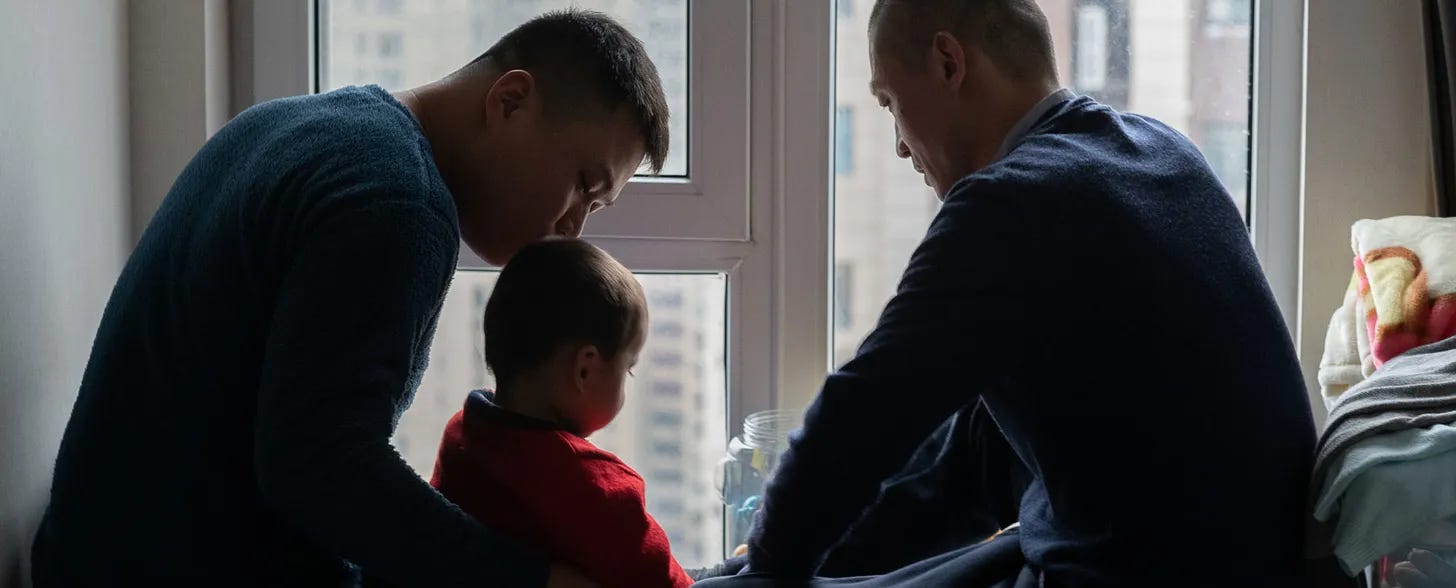Two Gay Chinese Dads. One Long and Winding Trip to Fatherhood.
Their journey starts in a country where same-sex marriage and surrogacy are illegal, and spans four years, two continents, and hundreds of thousands of dollars—all to get a kid of their own.
Five years after writing this Narratively Classic, I’m still amazed by how Li and Xu, the two men at the center of my piece, gave me so much access to their life story. And they were so patient with me the whole time while I asked them to recount every step in their process, even though it meant sometimes bringing up difficult memories. Surrogacy is complicated. It starts with such an intimate wish, yet gradually grows into a multi-year-long affair that can become very costly quickly and feel business-like. Sometimes it gets so messy it requires at least a dozen people to untangle the mess, as was the case for them. This feels like an important story to highlight always, but especially during Pride Month. I hope it offers readers a glimpse into one way that queer communities transform the traditional family structure, and that it can help some other prospective parents navigate this incredibly difficult journey.
—Zeyi Yang
Before Qiguang Li could pass through customs and step onto U.S. soil for the first time, he faced a three-hour detention where he learned that he needed to be more candid about his identity. It was September 2015, after a long flight from Shanghai to Los Angeles. Li came with another man, Wei Xu, who asked a U.S. Customs and Border Protection (CBP) officer whether the two of them could go through the border screening together. “What’s your relationship?” asked the officer. They said they were friends. “Then you can’t.”
So, Xu went first and passed the screening. He forgot one important thing though: Li’s travel documents were in Xu’s bag. Li, 37 at the time, spoke poorer English and couldn’t properly explain to the officer what had happened. After a while of anxious waiting, Xu returned to the checkpoint to look for Li, still unaware of his mistake, and they were both sent to a room for additional screening.
In the secondary screening room — commonly referred to by Chinese travelers as the “small dark room” — Xu and Li waited almost three hours, believing that they would be denied entry. An officer asked them why one’s documents were in the hands of the other. Xu kept explaining that they were very close friends, until at one point the officer asked, “Are you two partners?”
“Yes,” Xu admitted.
And then everything changed. Xu learned that if they had said they were partners from the beginning, they would have been allowed to go through border control together, avoiding all the drama. “But we felt kind of ashamed to say that,” he recalls.


